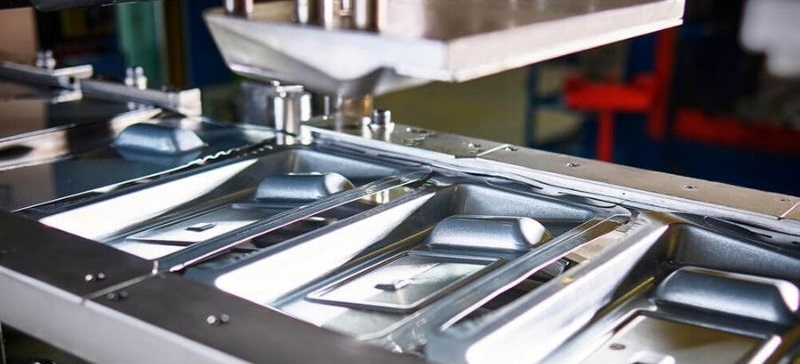CNC Innovation in Electric Vehicle Manufacturing: Optimizing Precision with Metal Stamping+ View more
CNC Innovation in Electric Vehicle Manufacturing: Optimizing Precision with Metal Stamping
+ View more
Date:2023-12-29 20:38
Introduction
The automotive industry is undergoing a transformative shift towards electric vehicles (EVs) due to their environmental benefits and technological advancements. With this transition, manufacturers are constantly seeking innovative solutions to enhance the efficiency and precision of the manufacturing process. One such breakthrough in EV production is the utilization of Computer Numerical Control (CNC) technology in metal stamping. This article explores how CNC innovation is revolutionizing electric vehicle manufacturing by optimizing precision and improving the overall quality of EV components.

Understanding CNC Technology
CNC technology involves the use of computer-controlled machines to automate precision machining tasks. These machines utilize coded instructions, often derived from 3D models, to guide the cutting and shaping of various materials. In the context of electric vehicle manufacturing, CNC technology plays a crucial role in metal stamping processes, where it enables the creation of intricate and accurate components that meet the stringent requirements of EV designs.
The Significance of CNC in Metal Stamping
Metal stamping is a fundamental process in electric vehicle production, as it allows for the mass production of consistent, high-quality parts. By combining CNC technology with metal stamping, manufacturers can achieve unparalleled precision, resulting in several key advantages:
1. Enhanced Efficiency
CNC machines offer remarkable speed and accuracy, significantly reducing production time and minimizing material waste. The automated nature of CNC technology ensures consistent quality throughout the manufacturing process, improving overall operational efficiency.
2. Complex Component Fabrication
Electric vehicle components often feature intricate shapes and designs, requiring precise manufacturing techniques. Traditional methods may struggle to achieve the required complexity, but CNC machines excel in creating intricate features with minimal errors, ensuring optimal functionality and fitment of EV parts.
3. Improved Quality Control
CNC technology offers advanced quality control measures through real-time monitoring and feedback systems. Manufacturers can detect deviations or defects early in the process, enabling swift corrective actions and reducing the risk of faulty parts reaching the final assembly stage. This meticulous quality control ensures the highest standards for EV components.
4. Material Optimization
Metal stamping processes using CNC machines can optimize material usage by minimizing waste. With accurate measurements and precise cutting techniques, manufacturers can maximize the utilization of raw materials, contributing to sustainability efforts within the electric vehicle industry.
Case Studies: Application of CNC in Electric Vehicle Manufacturing
1. Battery Tray Manufacture
The battery tray is a critical component in an electric vehicle, as it securely holds the battery pack in place while ensuring proper thermal management. CNC technology allows for precise metal stamping of battery trays, incorporating complex designs that accommodate various battery configurations. The accuracy achieved through CNC-based stamping guarantees a perfect fit, maximizing safety and performance.
2. Chassis Production
Electric vehicle chassis play a pivotal role in structural integrity and stability. CNC machines enable the fabrication of lightweight yet robust chassis components by accurately cutting and shaping high-strength metals. This results in improved durability and overall vehicle safety.
3. Powertrain Component Manufacturing
CNC technology finds extensive application in producing powertrain components such as motor brackets, transmission housings, and cooling system parts. These components demand intricate designs and precise manufacturing, which CNC-based metal stamping effectively achieves. By utilizing CNC technology, manufacturers can ensure optimal performance and reliability of powertrain systems in electric vehicles.
Future Outlook and Conclusion
As the electric vehicle industry continues to grow, the importance of CNC innovation in metal stamping cannot be overstated. The seamless integration of CNC technology with metal stamping processes enables manufacturers to achieve unparalleled precision, efficiency, and quality control. These advancements contribute significantly to the production of high-performance electric vehicles with enhanced safety features.
Share to:
Recommend wonderful blog posts

